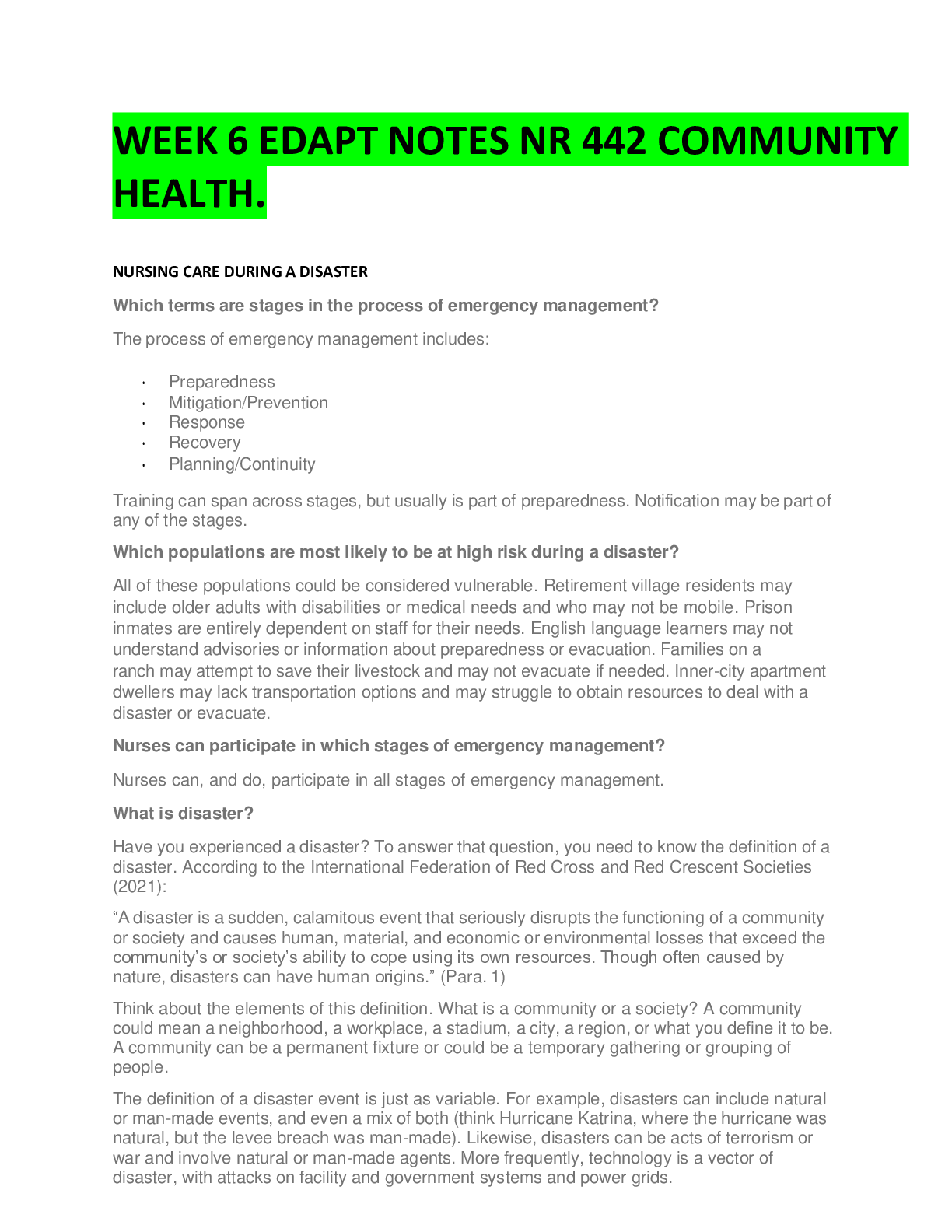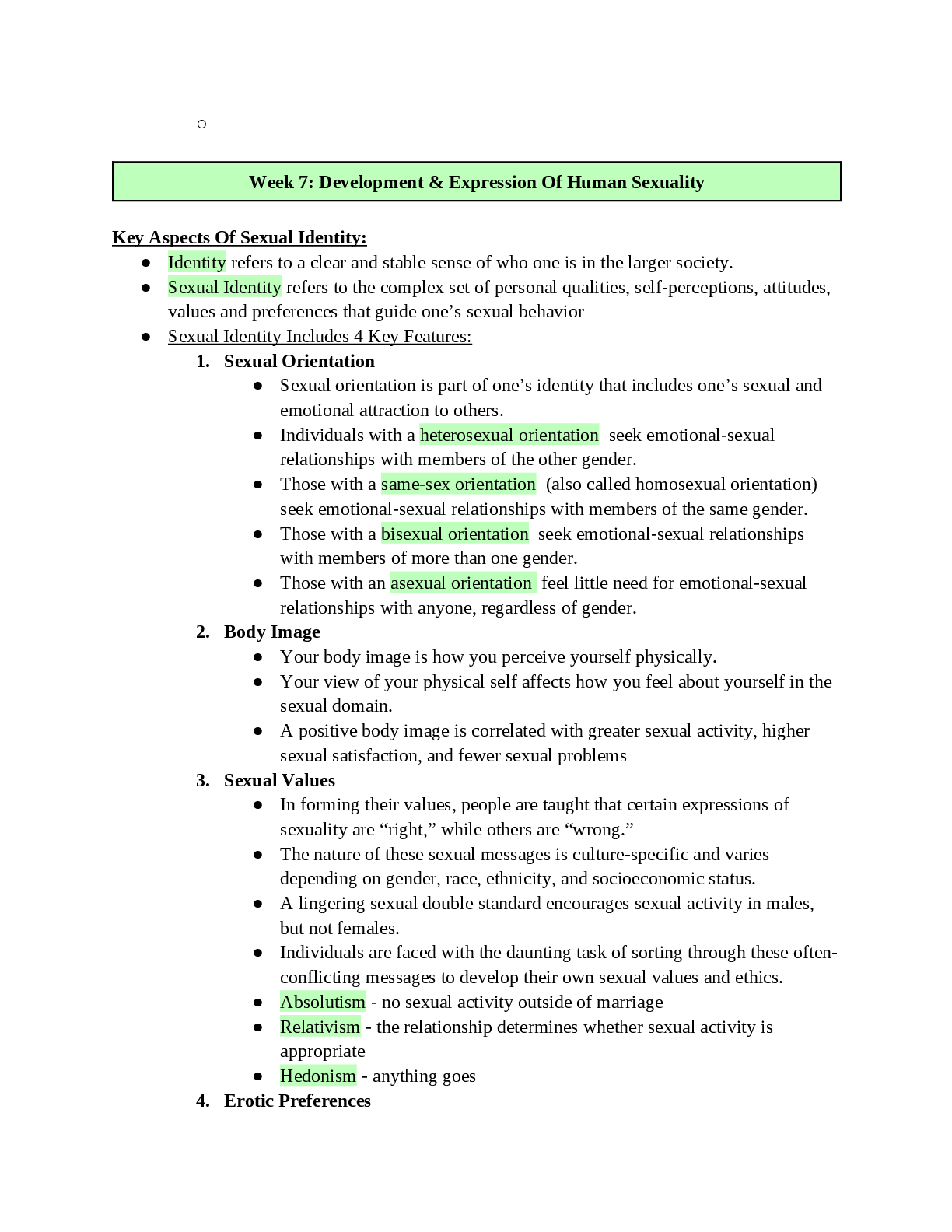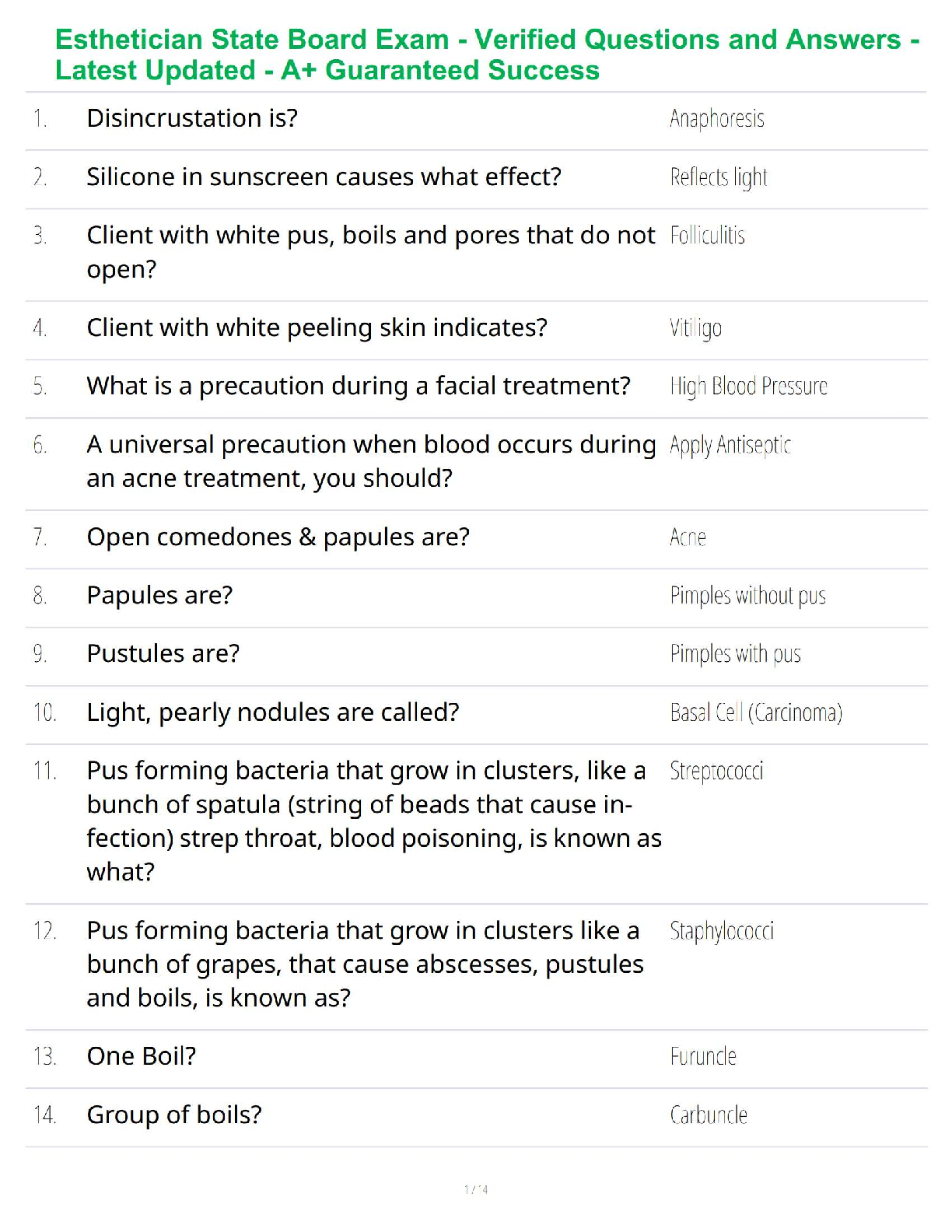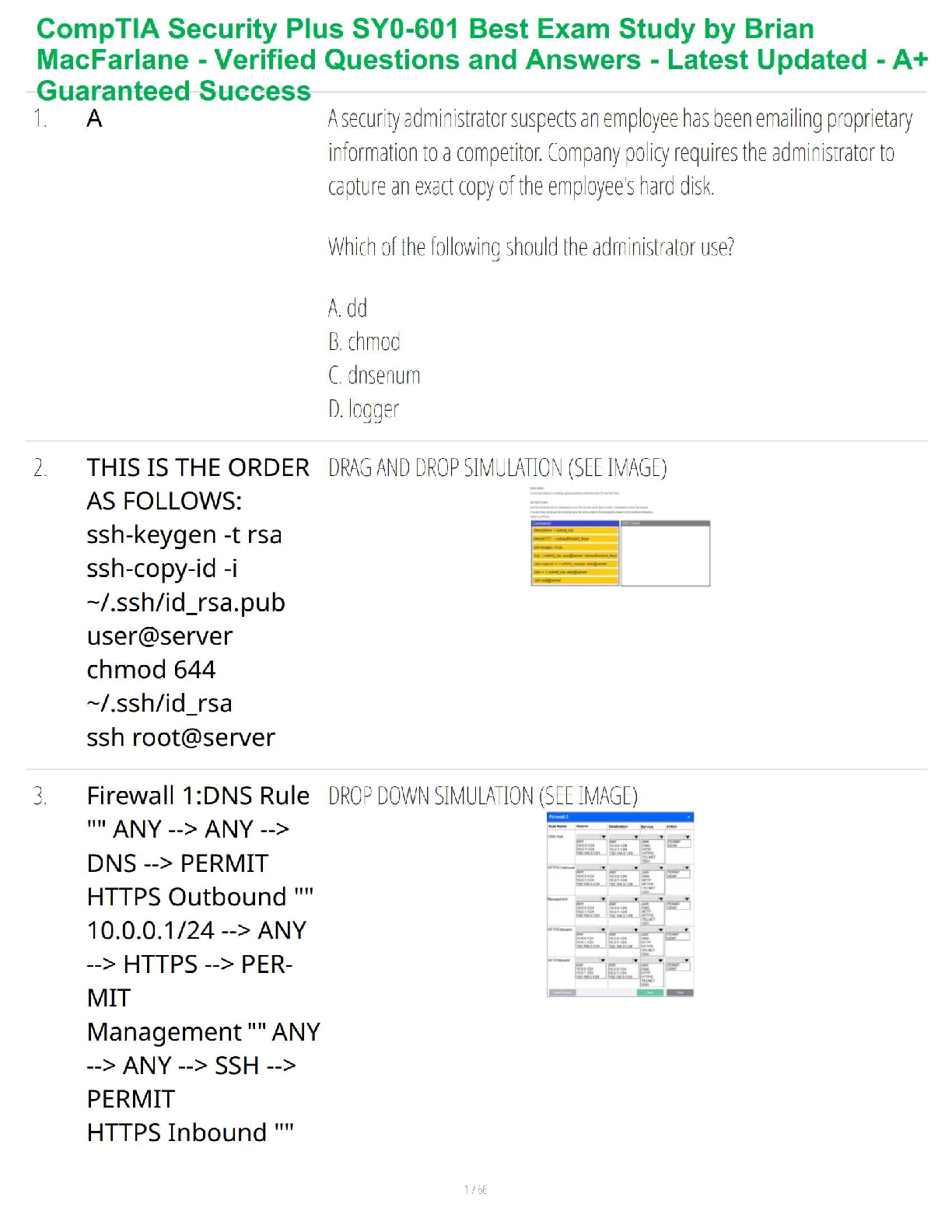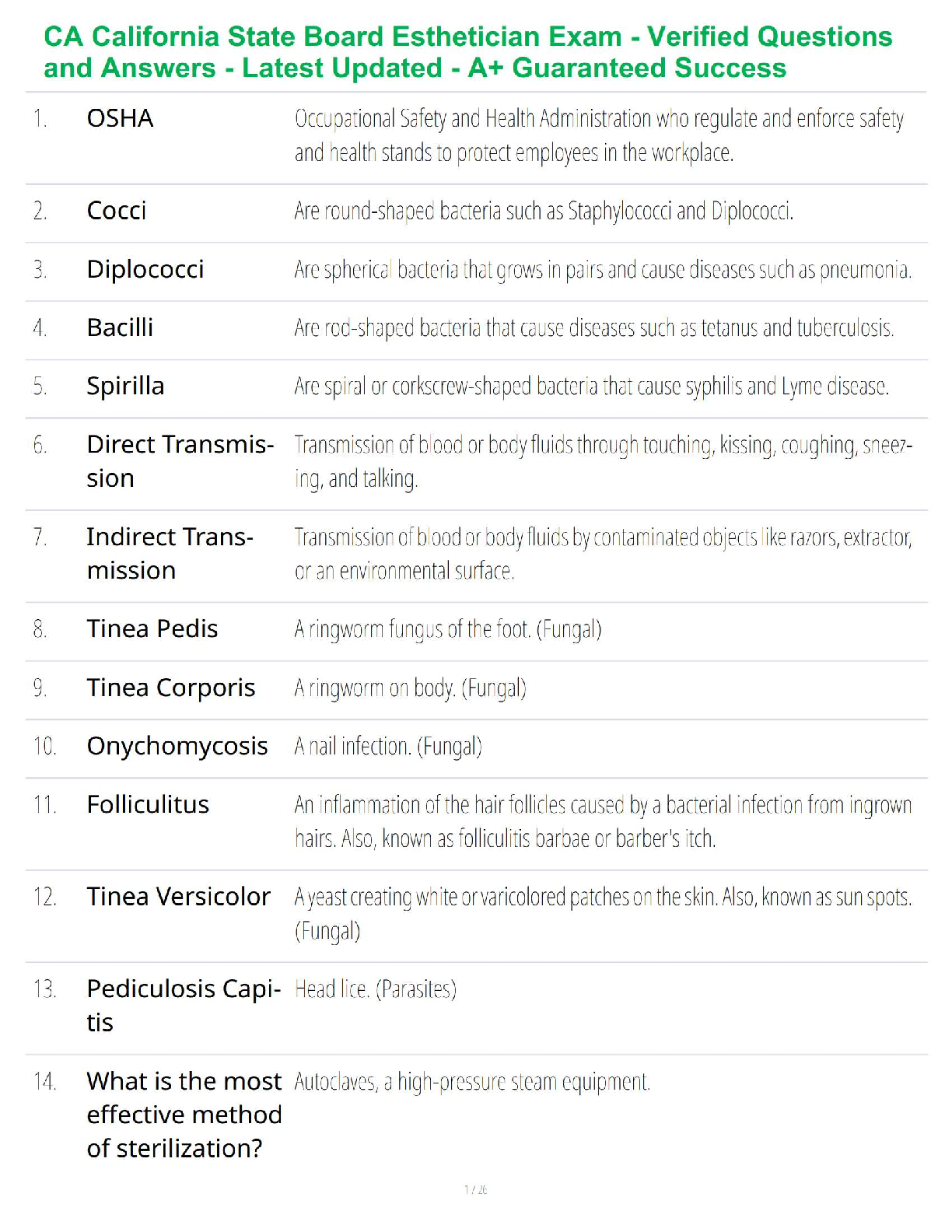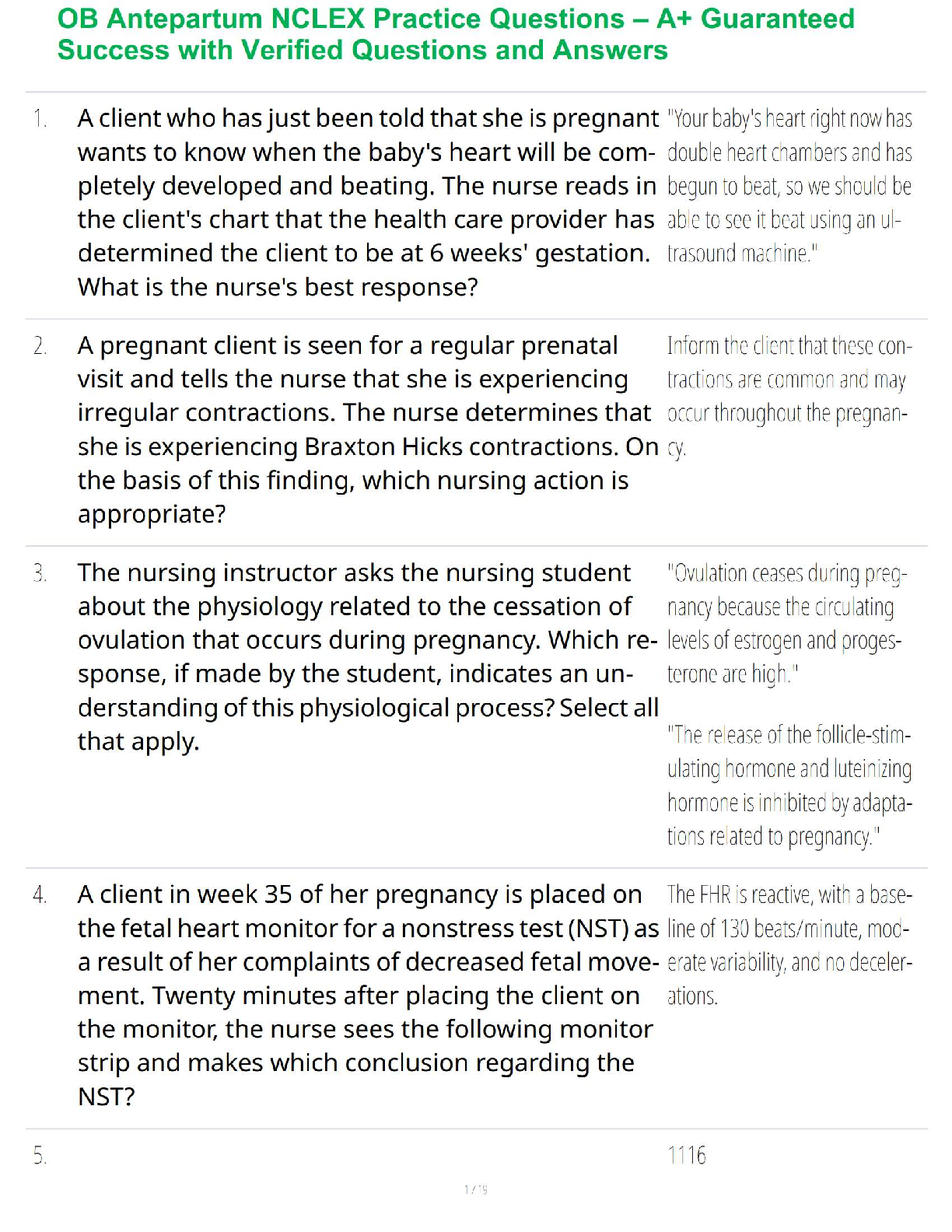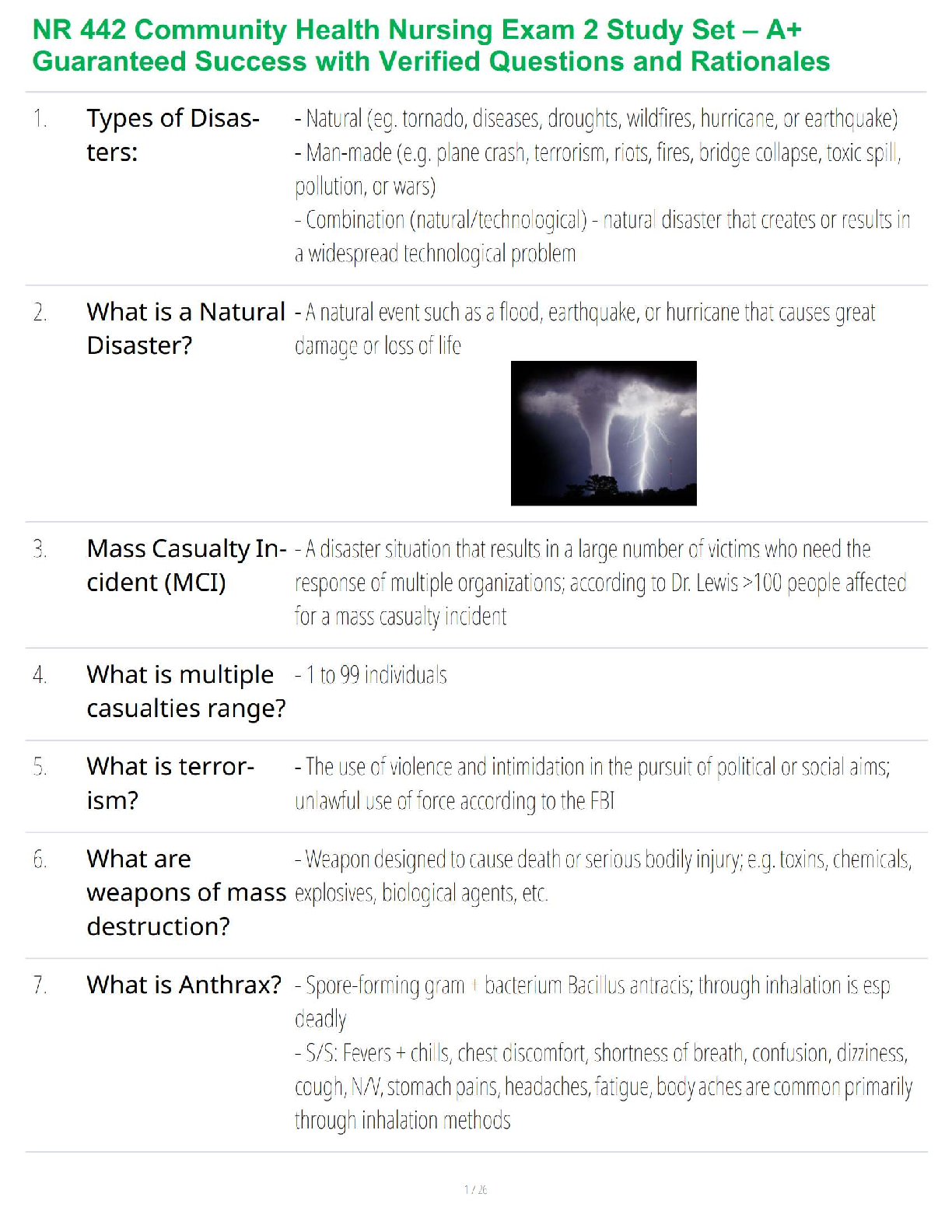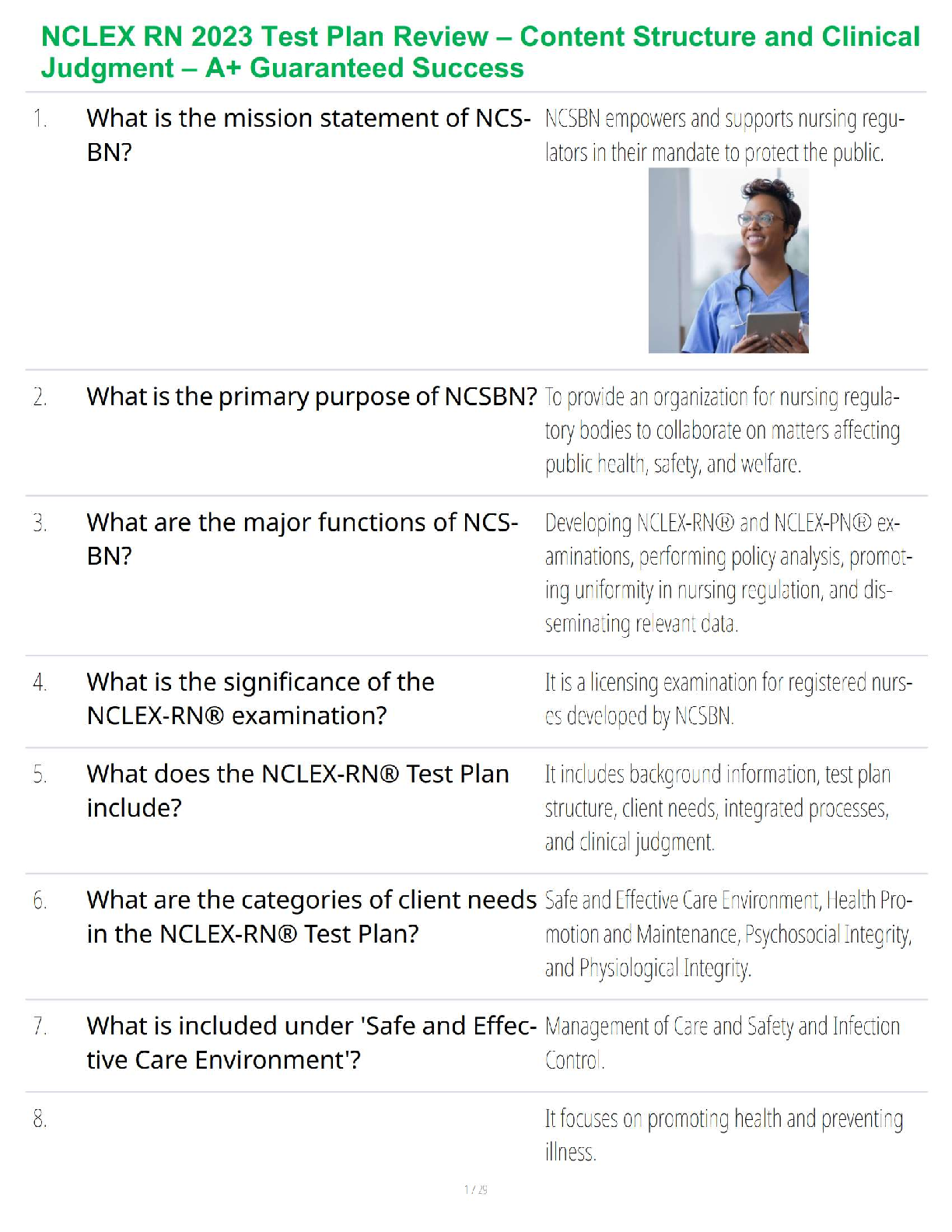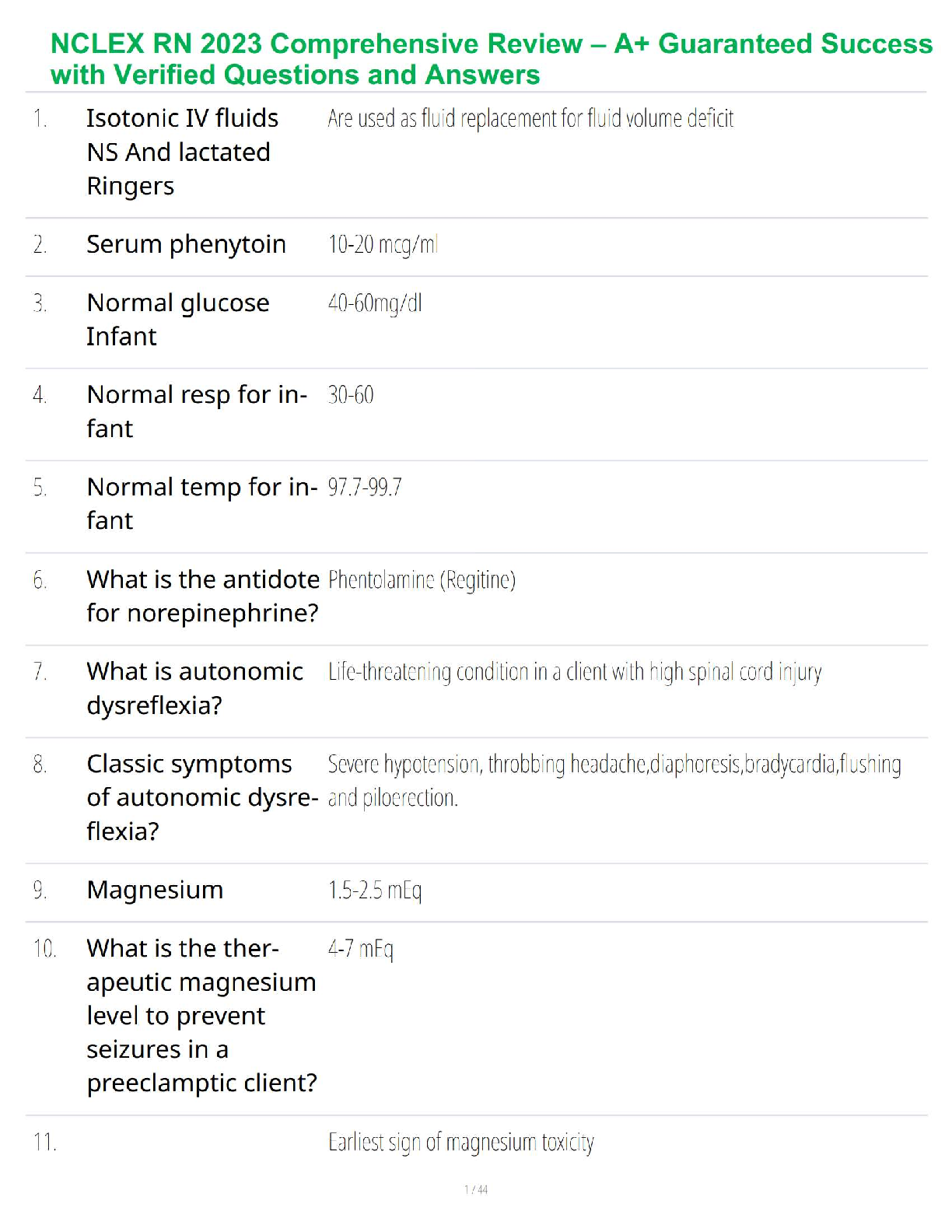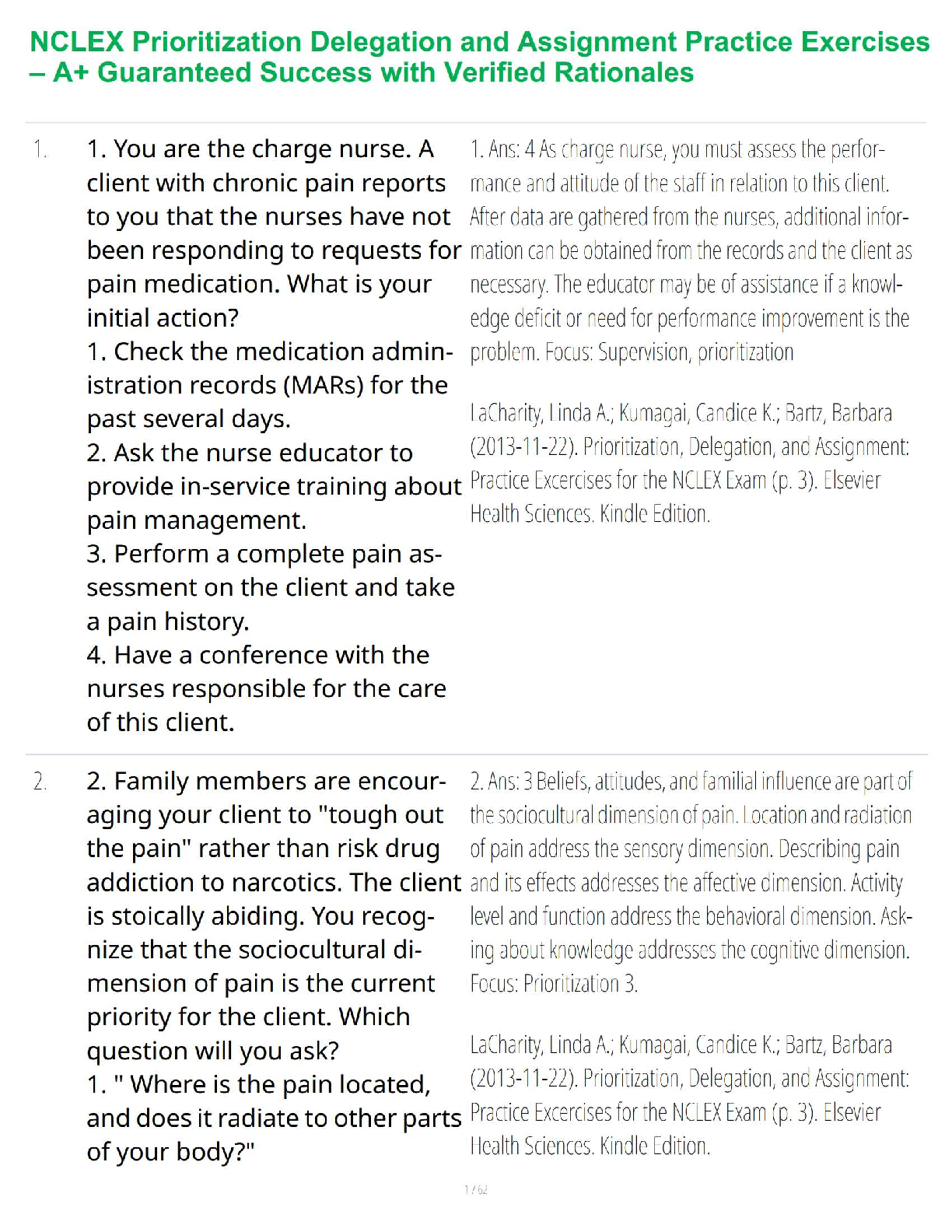Which terms are stages in the process of emergency management?
The process of emergency management includes:
• Preparedness
• Mitigation/Prevention
• Response
• Recovery
• Planning/Continuity
Training can span a
...
Which terms are stages in the process of emergency management?
The process of emergency management includes:
• Preparedness
• Mitigation/Prevention
• Response
• Recovery
• Planning/Continuity
Training can span across stages, but usually is part of preparedness. Notification may be part of any of the stages.
Which populations are most likely to be at high risk during a disaster?
All of these populations could be considered vulnerable. Retirement village residents may include older adults with disabilities or medical needs and who may not be mobile. Prison inmates are entirely dependent on staff for their needs. English language learners may not understand advisories or information about preparedness or evacuation. Families on a
ranch may attempt to save their livestock and may not evacuate if needed. Inner-city apartment dwellers may lack transportation options and may struggle to obtain resources to deal with a disaster or evacuate.
Nurses can participate in which stages of emergency management? Nurses can, and do, participate in all stages of emergency management. What is disaster?
Have you experienced a disaster? To answer that question, you need to know the definition of a disaster. According to the International Federation of Red Cross and Red Crescent Societies (2021):
“A disaster is a sudden, calamitous event that seriously disrupts the functioning of a community or society and causes human, material, and economic or environmental losses that exceed the community’s or society’s ability to cope using its own resources. Though often caused by nature, disasters can have human origins.” (Para. 1)
Think about the elements of this definition. What is a community or a society? A community could mean a neighborhood, a workplace, a stadium, a city, a region, or what you define it to be. A community can be a permanent fixture or could be a temporary gathering or grouping of people.
The definition of a disaster event is just as variable. For example, disasters can include natural or man-made events, and even a mix of both (think Hurricane Katrina, where the hurricane was natural, but the levee breach was man-made). Likewise, disasters can be acts of terrorism or war and involve natural or man-made agents. More frequently, technology is a vector of disaster, with attacks on facility and government systems and power grids.
What constitutes a disaster for one community might not be a problem in another. The key to determining if an event is a disaster is if the event exceeds the community’s ability to cope using its own resources. If a community can cope, the event might be an emergency but not necessarily a disaster. For instance, if a tornado destroys a neighborhood in a large city, the city likely has enough resources to manage this as an emergency event. However, suppose a tornado destroys an area in a small town. In that case, the event may stretch their capabilities, requiring responders and resources from the surrounding region might be called to help, so this would be a disaster in this small town.
Causes of disasters: You may ask why it matters what caused a disaster. Imagine you are a hospital emergency management coordinator. While planning for any disaster involves the same steps, how you implement those steps may be very different depending on if the disaster is natural or man-made, especially when planning prevention measures.
[Show More]
